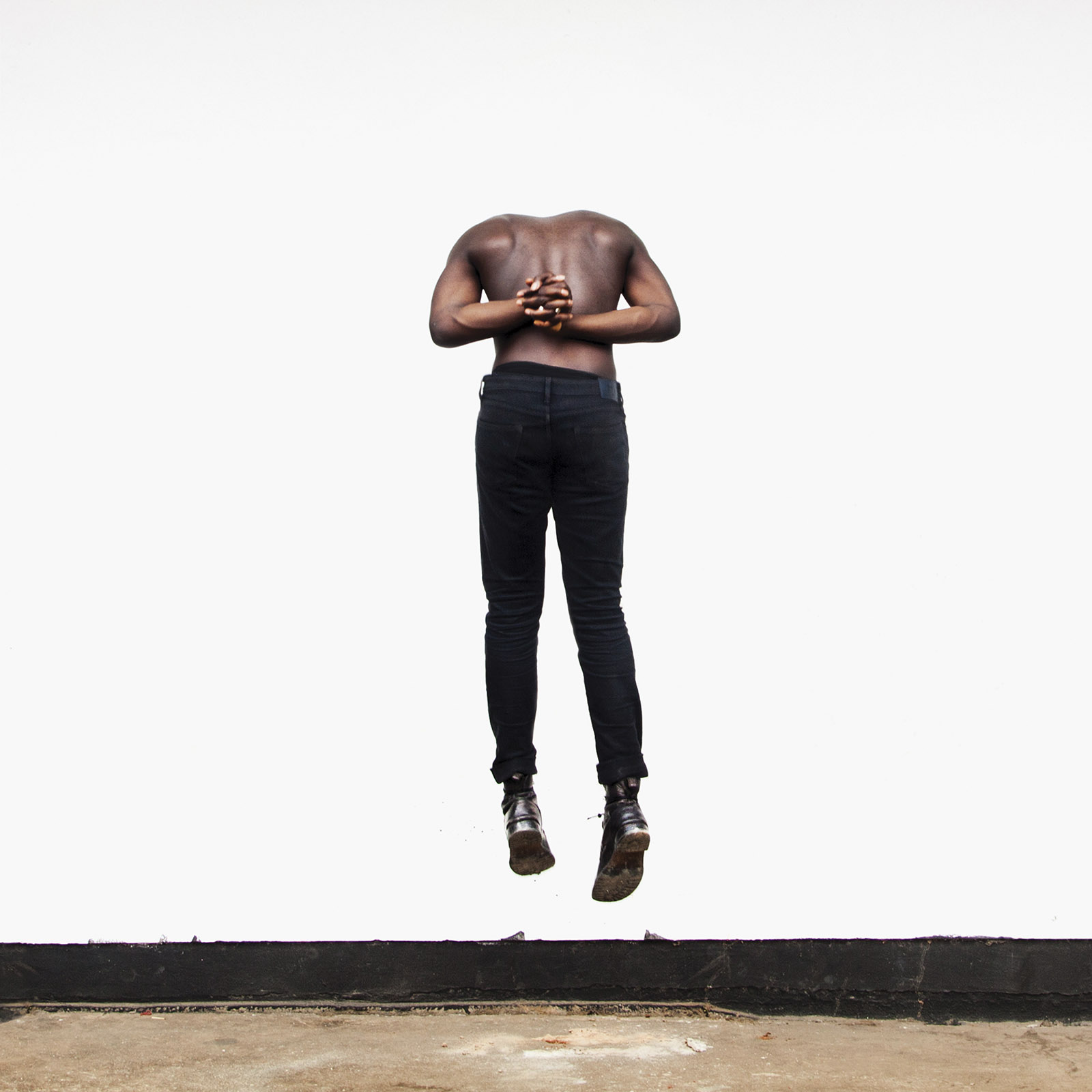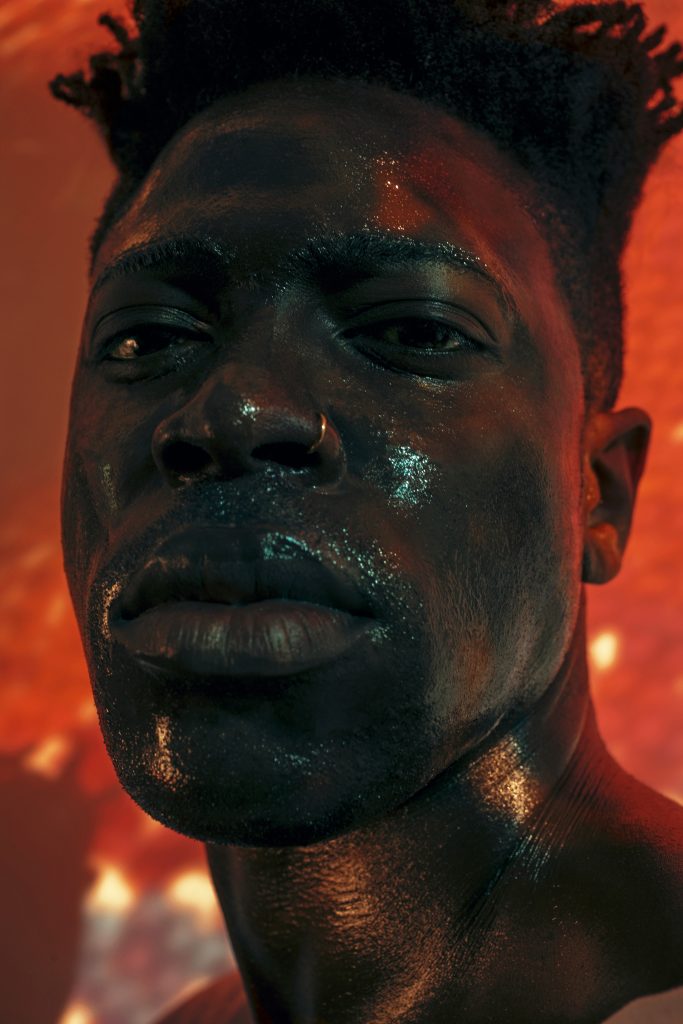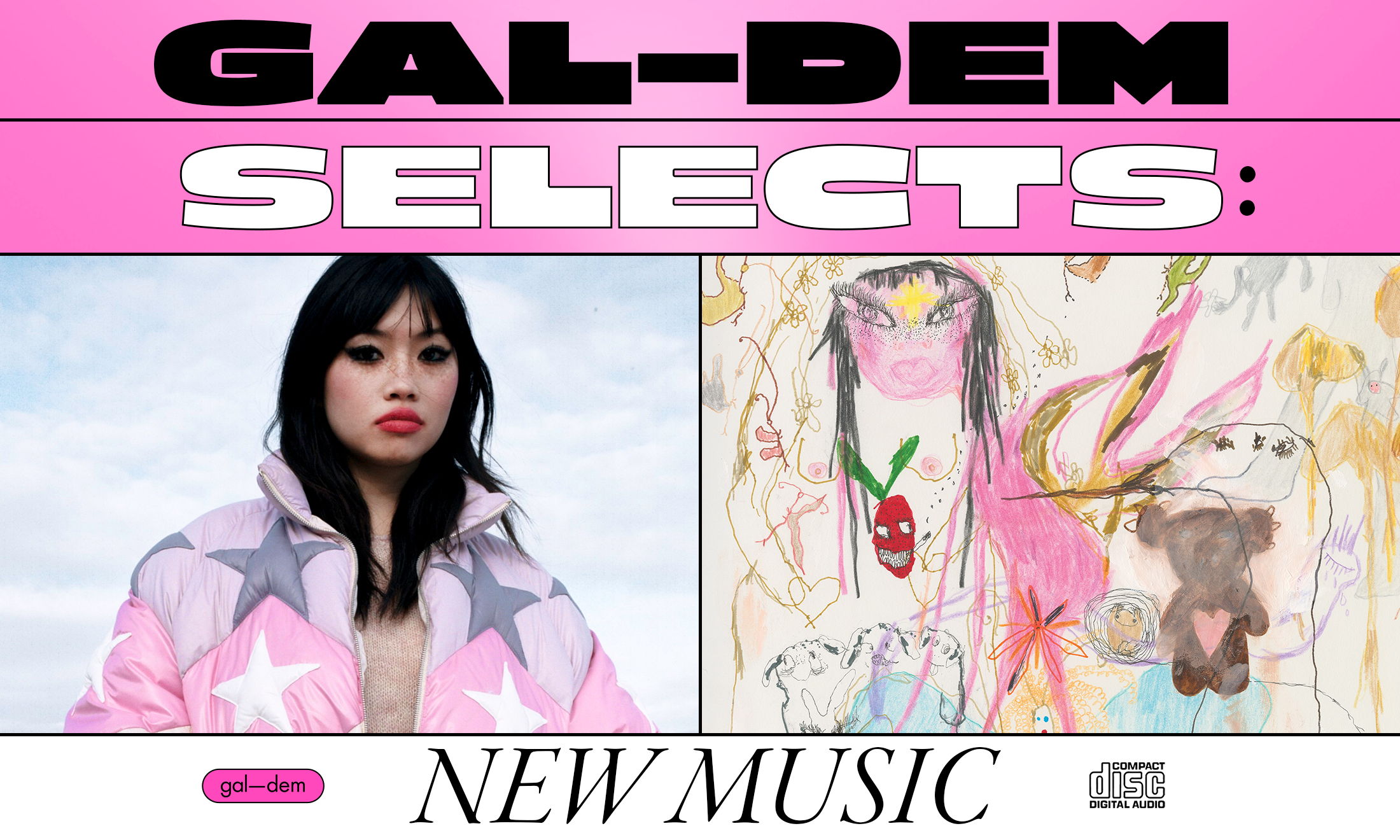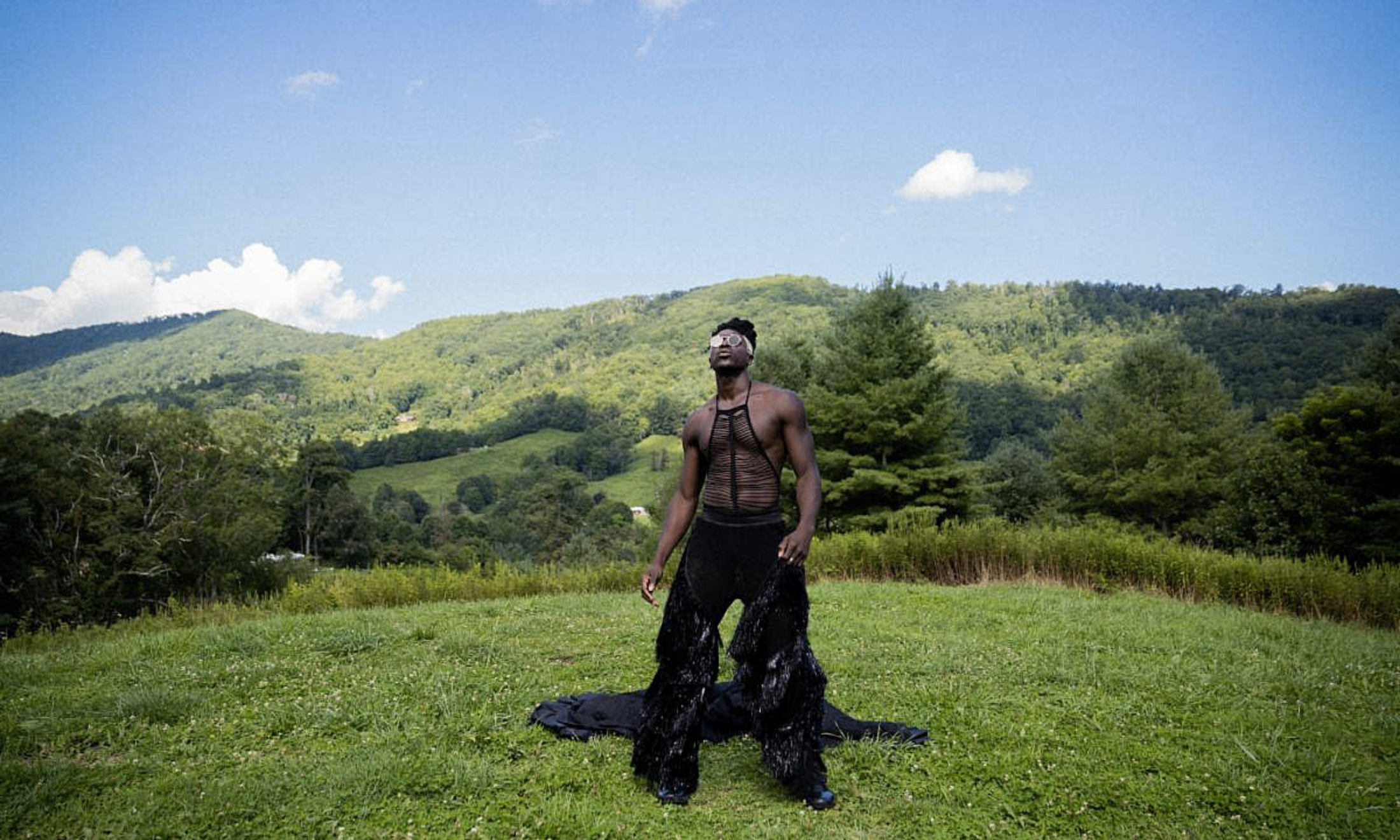
They say a debut album is a whole lifetime of work. Drawing on your earliest memories until adulthood, when most arrive, it’s supposed to be a culmination of everything you are until that moment. I sat down with Moses Sumney to find out exactly what his debut album, Aromanticism, says about him.
In some ways his debut does tell Sumney’s backstory. Born to Ghanaian immigrants in America, Sumney grew up proclaiming his dream of being a singer, until his parents didn’t find it funny anymore. He taught himself to sing in secrecy and at 20, he left home, bought himself a guitar and started performing. “That’s probably why I make the kind of music I make: quiet; intimate; emotional; introspective; fucked-up”, he tells me. Maybe having no one to confide in made self-reflection easy for the California native. His disarming honesty steers every song, whether it’s his lone voice or backed by an orchestra.
However, his razor-sharp expression means he doesn’t mince his words. Rather than giving you a step-by-step introduction to who he is, Sumney’s musical delivery is insight enough into his history. Instead, he chooses to only explore one theme in his debut album – lovelessness. Fascinated by “the things that you think about at night that you’re not supposed to admit you’re afraid of, but everyone’s thinking about”, he has a habit of hitting on emotions that most would rather take to their grave before speaking out loud. Aromanticism is no exception.
“Do your relationships still matter if there’s no ultimate relationship that trumps all of them and is the one that you’re going to die with?”
Sumney wastes no time tapping into our obsession with love or the lack of it. Singing, “Am I vital / If my heart is idle” on the first single lifted from the album, ‘Doomed’, it is a heavy but important question. “Do you still matter to the world? Do you still matter to yourself? Do you still matter to God? Do your relationships still matter if there’s no ultimate relationship that trumps all of them and is the one that you’re going to die with? Yeah”, he laughs. “It’s intense.” It is intense, but he has a point. Everything points to romance. We consume songs, books, and films about finding it. We download apps and take our chance on a reality tv show to meet “the one”. And if that fails, we joke to our friends about being #foreveralone.
Writing on tumblr of his “not-yet-dictionary definition” of an aromantic, he puts this idea forward: someone who doesn’t experience romantic love, or does to a diminished, abnormal degree. That flippancy to love resonates through the album too. ‘Make Out In My Car’ is a smooth jam about not wanting to go further than that and ‘Don’t Bother Calling’ puts a firm end to the “what are we” conversation.
But even in rejection mode, Sumney’s vocals and swirling harmonies are sweet. His vocal range sits comfortably in a falsetto that frankly some female singers would struggle with. His voice is an instrument in the truest sense: it’s the driving force of the album; it unites different genres with choir-like vocals; at points it’s so integral to the production that it’s unrecognisable. “I want it to be confusing. Is that a voice or an instrument? I’m interested in screaming and the weird parts of your throat that produce sounds. That’s all music to me.”
“I hated sacrificing ideas for other people’s ideas and I decide not to do it anymore”
If you’ve caught one of his live shows in London, you will have witnessed this is in action. Accompanied only by his loop pedal, because “I play alone, and I don’t have any friends”, Sumney builds soundscapes which are so eye-wateringly complex, you feel on edge and awed in equal measure.
On the album at least, he’s not completely alone. Bassist Thundercat makes an appearance, as does a flautist (his roommate), Miguel Atwood Ferguson (Suite for Ma Dukes), Nicole Miglis (Hundred Waters), Paris Strother (KING) and more. In terms of production, he admits that collaboration was tough at the beginning. “When I first started the album I tried to work with producers and I hated it. I hated being told what to do. I hated sacrificing ideas for other people’s ideas and I decide not to do it anymore.”
Instead he turned to friends, including Matt Otto (Majical Cloudz) and Joshua Willing Halpern who were open to help and bow out at the right moment. “I would come up with stuff myself and be like,“hey I wrote this thing… Do you know how to make it sound exactly like this?” And [Josh] would have the technical skills to go on the computer and do that. It was very collaborative, but it was the first time I was sitting with files, at my house with sounds, arranging them in the computer, editing them, doing production.”
However, if you were expecting appearances from his other friends and collaborators – Solange, James Blake, Kelela and Sufjan Stevens to name a few – you’ll be disappointed. “It was really important to me that there are no other singers… It was a huge rule I set for myself.” But did people really assume it would be a who’s who of his friends? “All. The. Time…Their music is amazing, but for this first album, this is me – establishing myself for myself… I don’t want to put someone else on it just for clicks.”
Although they don’t feature, his friendship with Solange and Kelela was an unavoidable topic. A black artist whose main focus isn’t R&B and is in full control of the creative process is bound to have some run ins with the stereotype police and snakes of the music industry. Beyond the hangouts and birthday messages, there’s got to be a wealth of knowledge – and receipts – between the three of them. “We’re always sending messages; ‘Hey have you heard of this writer?’ ‘What do you think of this journalist?’ ‘Well I read this piece from 2006 – let me tell you…’ or ‘They interviewed me in 2006 and they say the same fucked up shit to me too.’ There’s a combined collective power of knowing or having a community, and being like you actually can’t pull a fast one because I know you tried that already.”
“I find power in sharing ideas, stories, histories, experiences with other artists. To be like, somebody is trying to tell me this is the way things are done. Is that right?”
“One thing people in positions in power want from minorities is the ability to isolate them so that they have more control. I find power in sharing ideas, stories, histories, experiences with other artists. To be like, somebody is trying to tell me this is the way things are done. Is that right? Or someone tried to convince me to do this thing that seems crazy and amoral.”
Equipped with wisdom and a voice to boot, Moses Sumney is no rookie. This may be his first album, but he knows that he wants from his music, himself and the industry. In his words, you might have to “listen a few times to like it or to get it”, but know that Aromanticism is only the beginning.
You can listen to Aromanticism, released via Jagjaguwar, here










